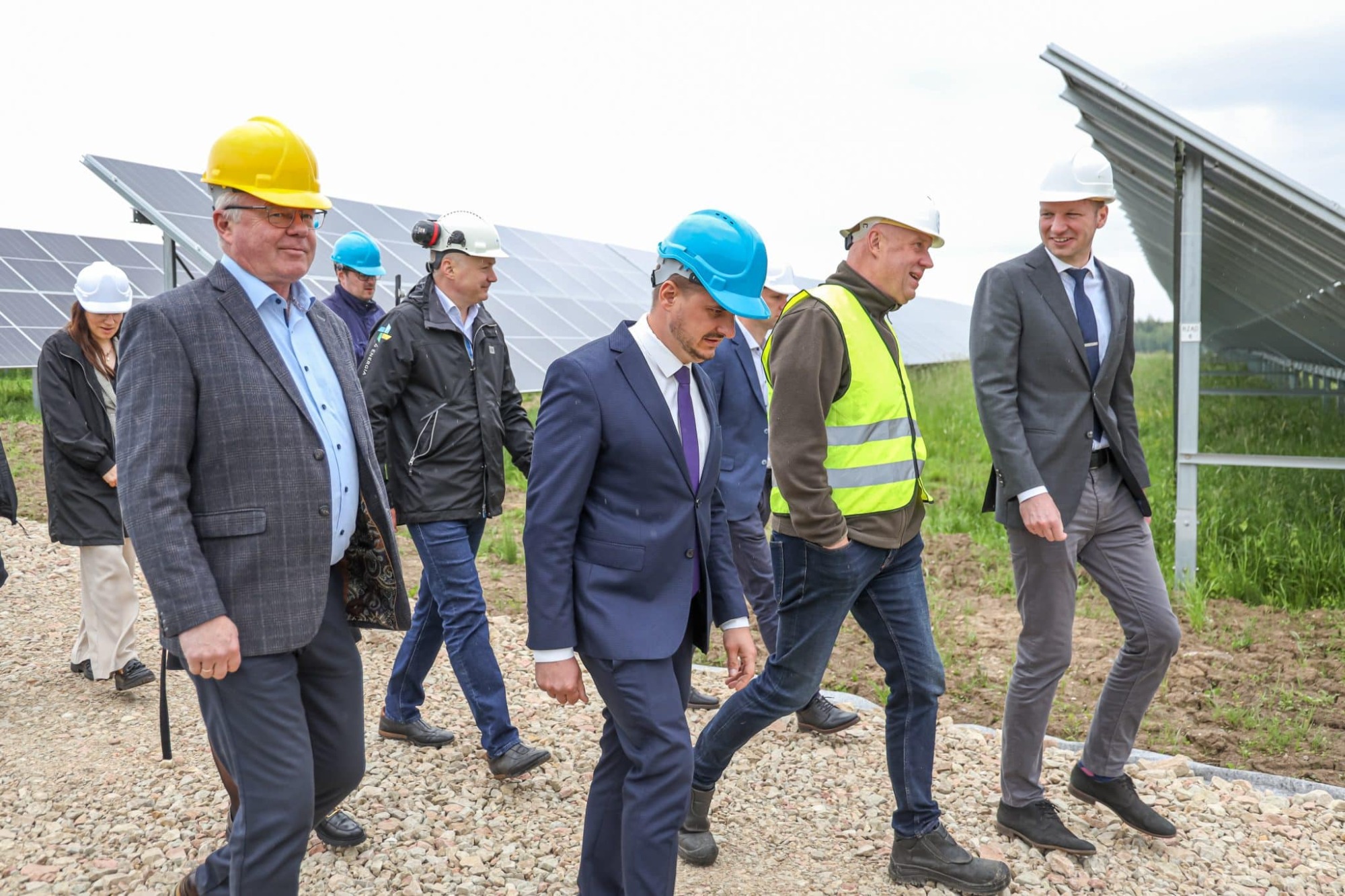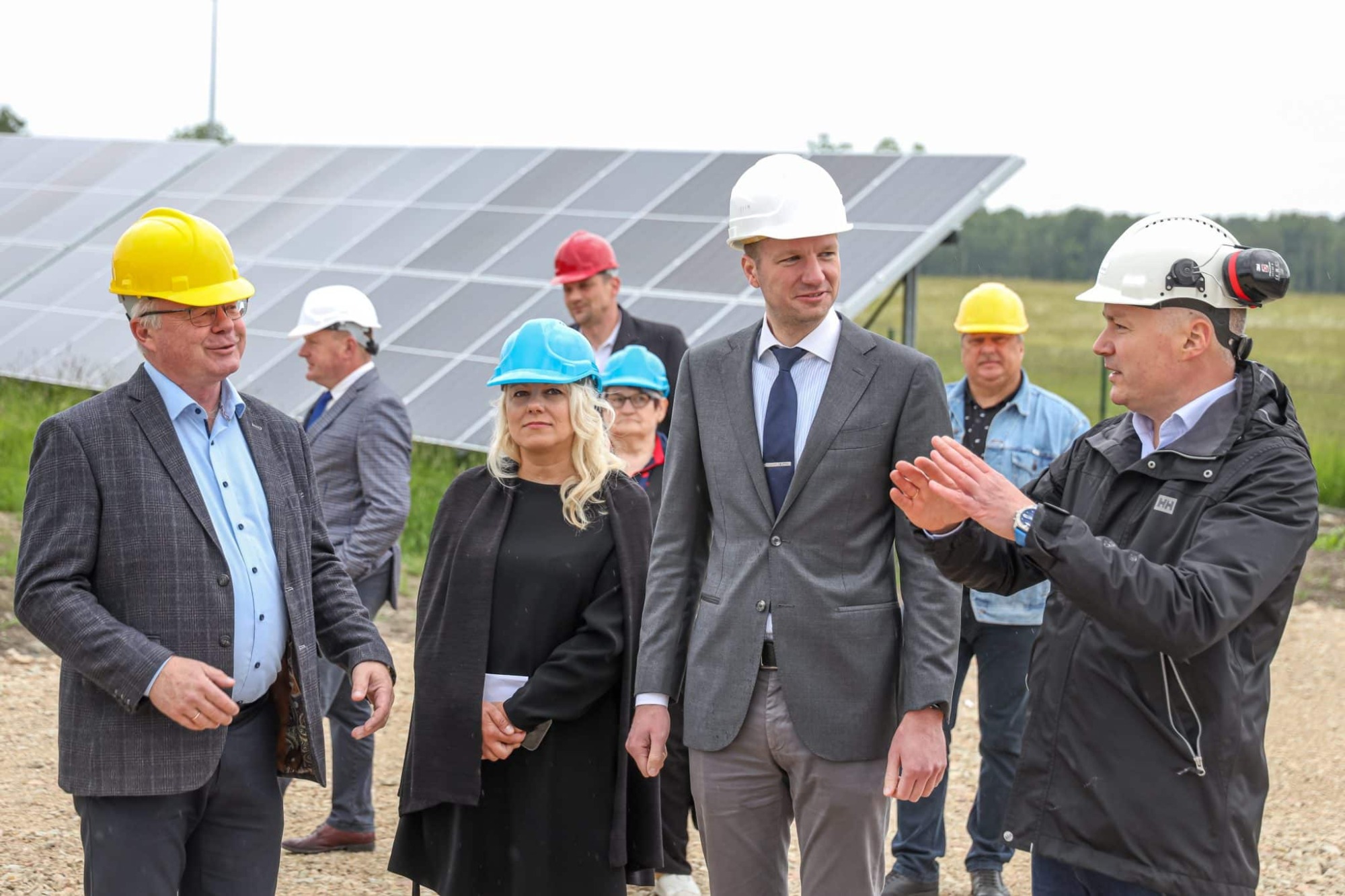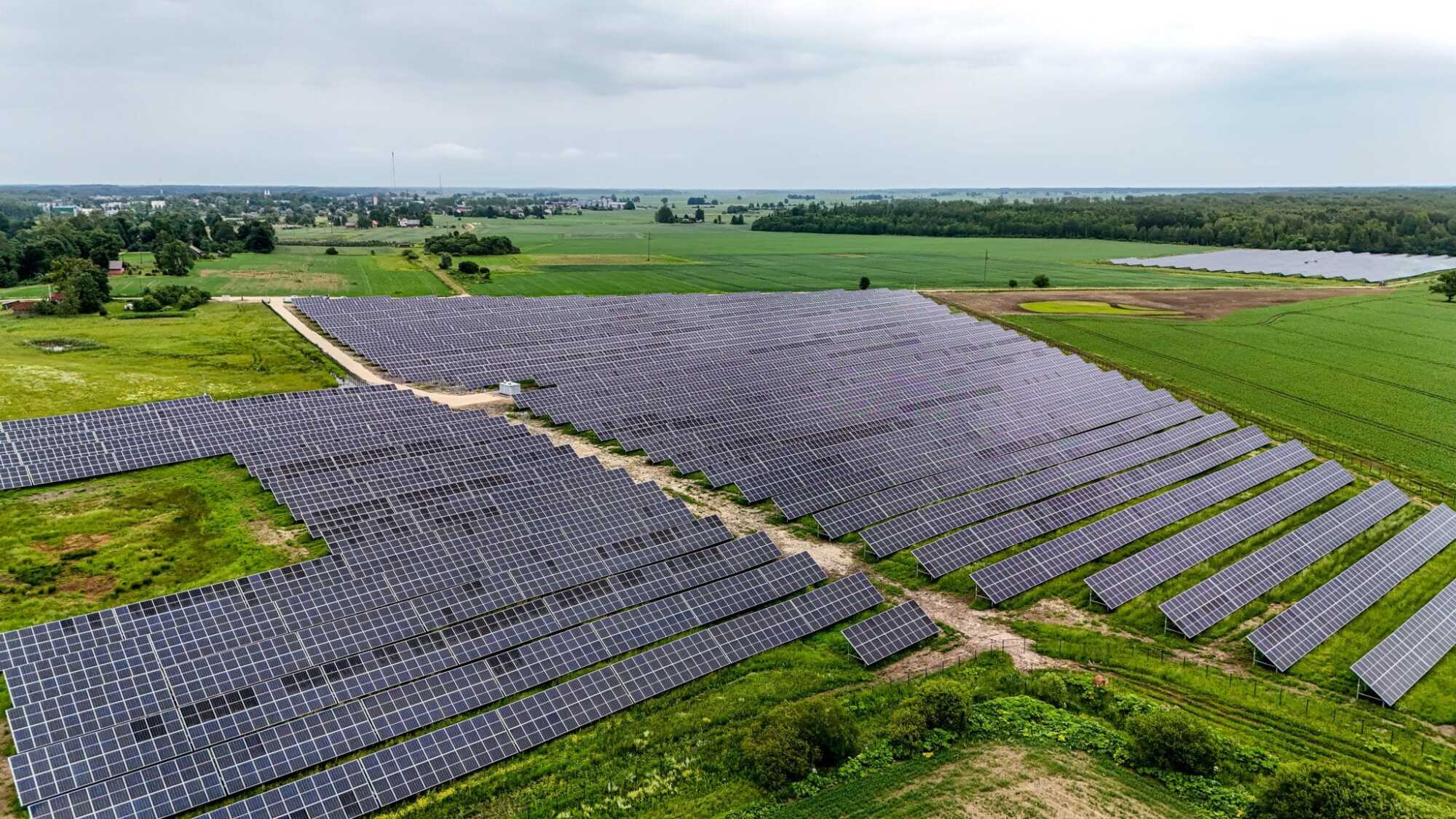On Friday, the regional visit of the Minister of Climate and Energy to Madona Municipality, joined by the mayor and other representatives of the local municipality, began at the solar park developed by “Sunly” in Barkava Parish. The work on the 11 MW solar park, which will be able to provide the annual electricity consumption for approximately 5000 households, is nearing completion. The park visitors were introduced not only to the nearly completed project but also to the company’s plans in the region.
During the visit, the Minister of Climate and Energy of Latvia, Kaspars Melnis, emphasized the importance of developing an economically viable hybrid model of energy production alongside the solar park. This includes considering batteries for energy storage as well as the potential for wind energy development. In his opinion, similar solutions should be considered by other energy project developers, as this would benefit both society and the country.
According to Toms Nāburgs, Sunly’s Country Manager for Latvia: “Barkava Parish is suitable for solar energy production, so we are pleased that the first of our projects is already in its final stages. In the near future, we anticipate continuing work on another solar park nearby and are also considering the possibilities of placing batteries and a few wind turbines. This means that Barkava’s role in the overall renewable energy production will increase regionally and even nationally. Our company’s presence in the parish will also grow, so we are actively cooperating with the local municipality and residents, thinking about ways to help the local community with important projects, as we understand our interest in developing in this area is long-term.”
Agris Lungevičs, Mayor of Madona Municipality, emphasized that, in his opinion, accessible electricity is crucial for thoughtful and targeted regional development: “I see that projects in this field, implemented thoughtfully, can contribute to local development. Currently, throughout Latvia, as well as in Madona Municipality, we are working on the territorial plan until the end of 2025, identifying places where such projects could be implemented. Looking to the future, various manufacturing and other types of businesses that require accessible electricity could be interested in developing these projects not far from the power plants as well. From a broader security perspective, it is important that we are increasingly able to produce energy locally. By simultaneously developing transmission infrastructure, we can not only think about meeting our relatively small electricity consumption but also about exporting it.”
The project was built by Alseva EPC, and it is expected that the project will be finalized in June, completing the landscaping work at the site.



